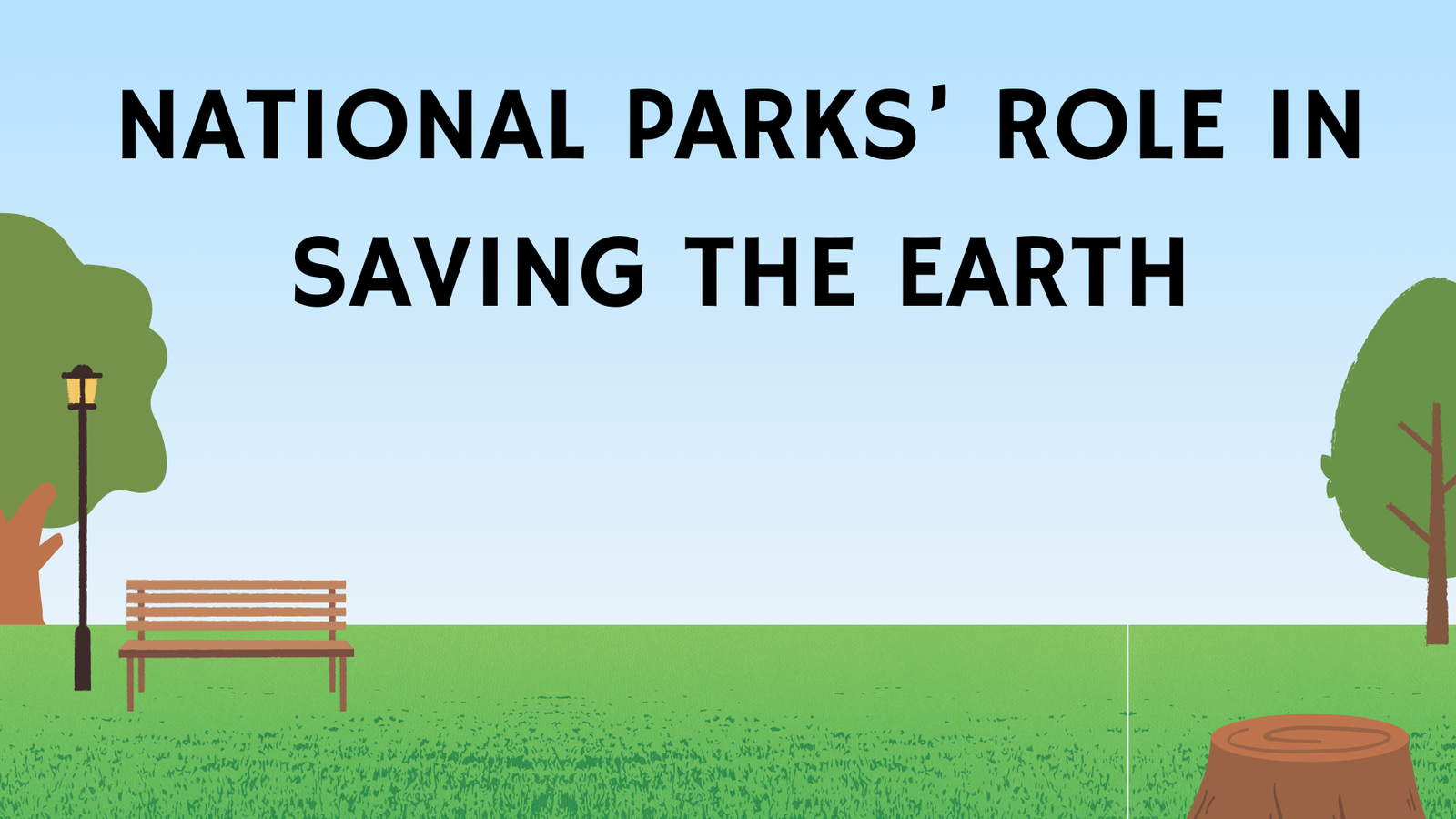National parks play an essential role in protecting our environment. They offer safe spaces for plants and animals, keep our water clean, fight climate change, protect our soil, and provide learning opportunities for people.
How National Parks Protect the Environment:
National parks are critical for protecting nature. They offer a safe home for many plants and animals, allowing them to grow and reproduce without human interference. By maintaining biodiversity, national parks help ensure the survival of various species and contribute to a healthier planet.
Preserving Wetlands:
Wetlands are areas that funnel water to rivers, lakes, and oceans. They are crucial for the health of our water systems. National parks protect these wetlands, ensuring that we have clean and abundant water supplies. Healthy water systems are essential for both humans and wildlife.
Carbon Sinks and Climate Change:
National parks act as carbon sinks, absorbing carbon dioxide from the atmosphere. This helps to reduce the effects of climate change. The forests and plants in these parks absorb large amounts of carbon dioxide, which helps to keep the air clean and offset emissions. This process is vital for fighting global warming and preserving the Earth for future generations.
Soil Health and Erosion Prevention:
National parks help maintain soil health by preventing soil erosion and degradation. Soil erosion can lead to the loss of fertile land and increased sediment in water bodies, harming both plants and animals. By protecting the soil, national parks support a wide range of species and contribute to the stability of ecosystems.
Environmental Education and Research:
National parks are also great places for learning about the environment. They offer unique hands-on experiences for visitors to learn about conservation, ecology, and the importance of preserving nature. Researchers use national parks to study ecosystems, which helps them understand the impacts of climate change and other environmental threats. This research contributes to better conservation strategies.
The Importance of Biodiversity:
Biodiversity is the variety of life in a particular habitat or ecosystem. National parks help maintain biodiversity by providing a safe space for many different species. This is important because biodiversity supports ecosystem health and resilience. Diverse ecosystems can recover from disturbances more quickly and support a greater variety of life.
Water Quality and Conservation:
National parks protect important water sources. Wetlands, rivers, and lakes within these parks are crucial for maintaining clean and abundant water supplies. By protecting these areas, national parks help ensure that we have clean water for drinking, agriculture, and other uses. Water conservation is essential for sustaining both human and wildlife populations.
Combating Climate Change:
Climate change is one of the biggest challenges facing our planet. National parks play a significant role in combating climate change by absorbing carbon dioxide and reducing greenhouse gas levels. The plants and trees in these parks act as natural carbon sinks, helping to mitigate the effects of climate change. This is vital for protecting our planet and ensuring a healthy future.
Supporting Soil Health:
Healthy soil is essential for plant growth and ecosystem stability. National parks help maintain soil health by preventing soil erosion and degradation. Soil erosion can lead to the loss of fertile land and harm water quality. By protecting the soil, national parks support diverse plant and animal life and contribute to overall ecosystem health.
Educational Opportunities:
National parks provide excellent education opportunities. Visitors can learn about conservation, ecology, and the importance of protecting the environment. Hands-on experiences in national parks help people understand the value of nature and the need for conservation. Educational programs and activities in these parks inspire people to become more environmentally conscious and take action to protect our planet.
Research and Conservation:
Researchers use national parks to study ecosystems and the impacts of environmental threats. This research helps scientists develop better conservation strategies and understand how to protect our natural resources. National parks are valuable research sites that contribute to our knowledge of ecology and environmental science. By studying these protected areas, researchers can learn how to manage and preserve other ecosystems more effectively.
Conclusion:
National parks are vital for protecting our environment. They maintain biodiversity, preserve wetlands, absorb carbon dioxide, protect soil health, and offer educational and research opportunities. As we face environmental challenges, the importance of national parks in saving the Earth cannot be overstated. Their role in environmental protection and sustainability is crucial for ensuring a healthy and thriving planet for future generations. By supporting and visiting national parks, we can help protect our natural resources and contribute to a healthier planet.
FAQs:
1. How do national parks help protect the environment?
National parks provide safe havens for plants and animals, maintain biodiversity, and act as carbon sinks.
2. What role do wetlands play in national parks?
Wetlands funnel water to rivers, lakes, and oceans, ensuring clean and abundant water supplies.
3. How do national parks help combat climate change?
National parks absorb carbon dioxide from the atmosphere, reducing the effects of climate change.
4. Why is soil health important in national parks?
Maintaining soil health prevents erosion and supports diverse plant and animal species.
5. What educational opportunities do national parks provide?
National parks offer hands-on experiences for learning about conservation and ecology.
6. How do researchers benefit from national parks?
Researchers study ecosystems in national parks to understand environmental impacts and develop conservation strategies.
